AI is coming to your home — here's how it could revolutionize your kitchen
How will AI make an impact in the kitchen?
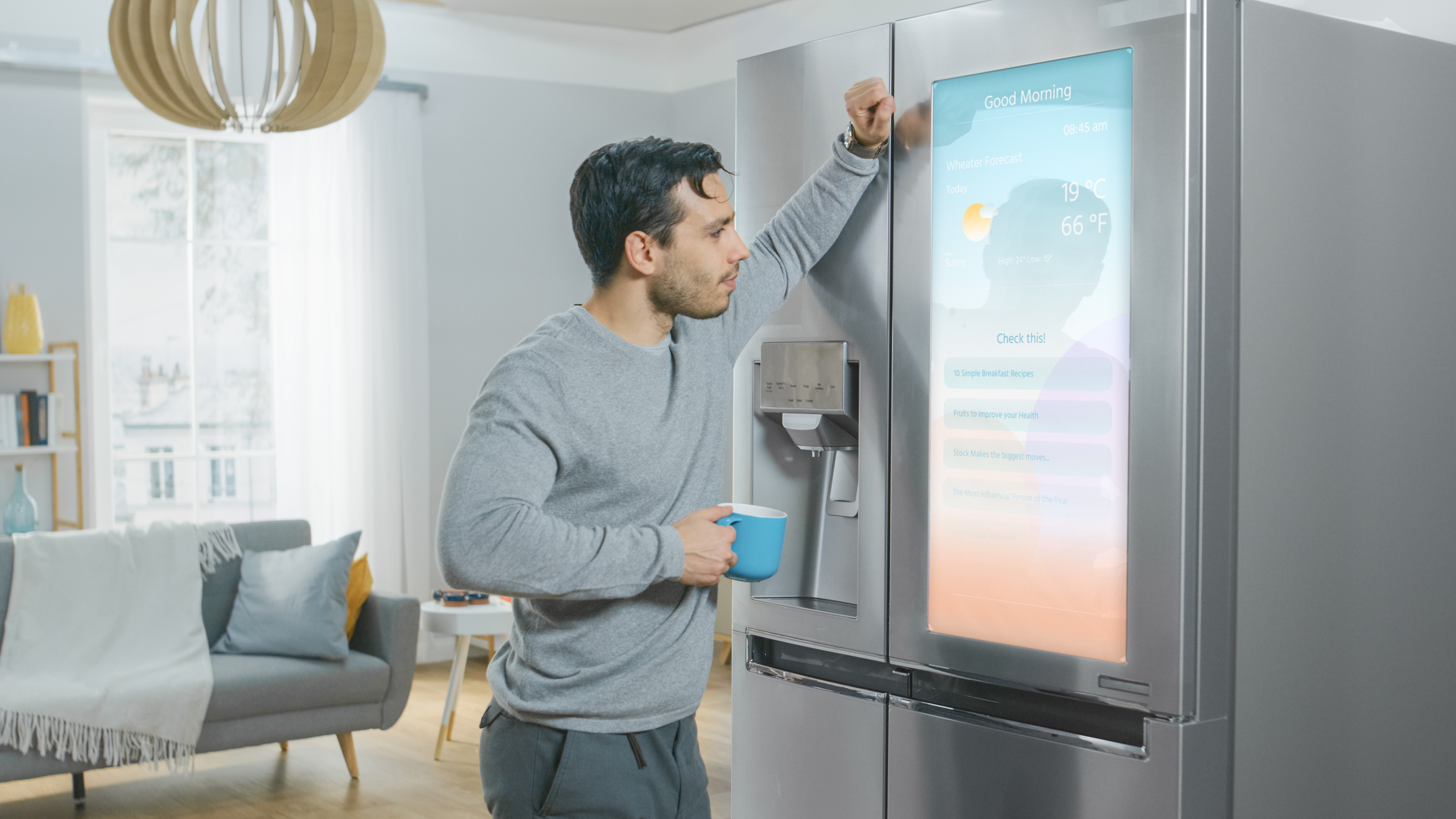
Using ChatGPT and Midjourney to help streamline your workflow is one thing, but what do you think about letting artificial intelligence into your house? Well, if you're using any kind of smart home device, you're already using some degree of AI.
Machine learning is playing an increasing role in developing smart home systems to, for example, allow homeowners to control and automate various aspects of their homes remotely. It’s not about making you lazier, but about enhancing convenience, security and energy efficiency.
In essence, AI is taking smart tech and making it smarter. We’re going from ‘smart’ meaning you can control an appliance with your phone, to ‘smart’ meaning it learns and adapts to your needs all by itself.
How does AI work with smart home systems?
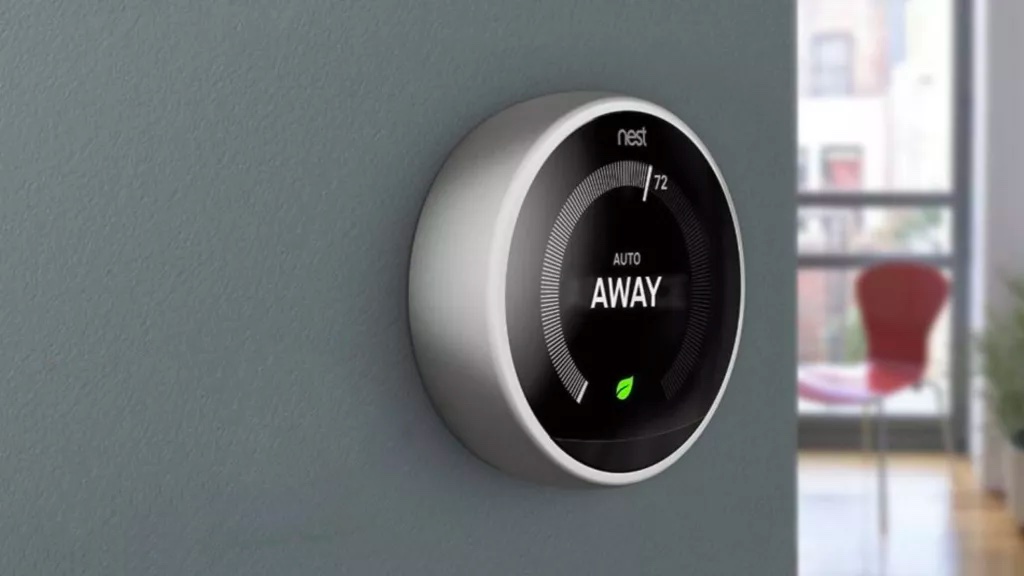
Any smart home device, such as a smart thermostat, smart lighting system, security camera, TV or kitchen appliance, can be controlled remotely through a smartphone or voice command.
The integration of AI into smart home systems is making them smarter. Smart devices can use machine learning algorithms to learn about a user’s habits and preferences over time. We saw this first with the likes of the smart thermostat. What temperature do you prefer, and when is your heating on and off?
AI integration can help set a personalized heating schedule that gives you greater comfort, ultimately optimizing energy usage.
The future of AI in our homes
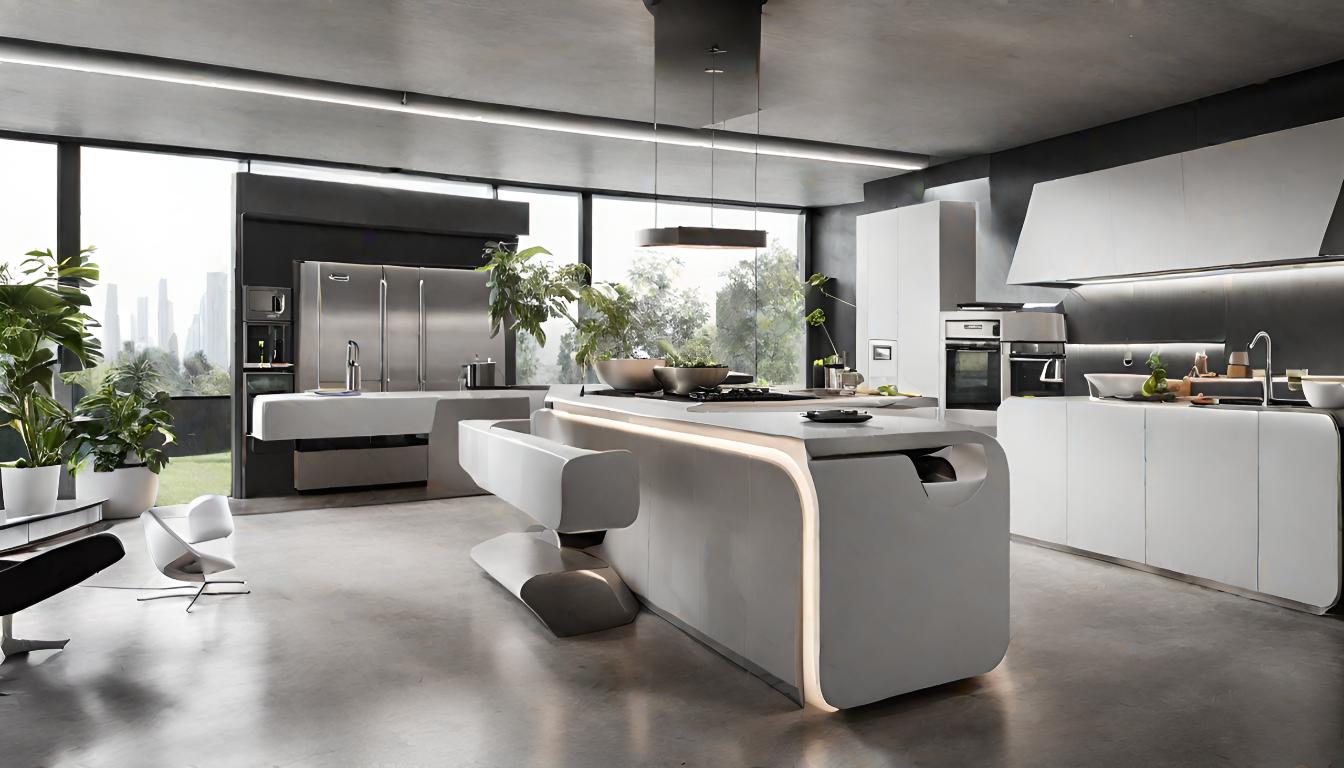
The global smart home automation market is expected to see a meteoric rise in the coming years, with Grand View Research predicting an annual growth rate of 27.3% from 2023 to 2030 in its Smart Home Automation Market Size, Share & Trends Analysis Report.
Sign up to get the BEST of Tom's Guide direct to your inbox.
Get instant access to breaking news, the hottest reviews, great deals and helpful tips.
It puts this growth down to the following: “The increased demand for smart applications such as voice control, energy management, and others has created lucrative business opportunities in the market.”
The kitchen of the future
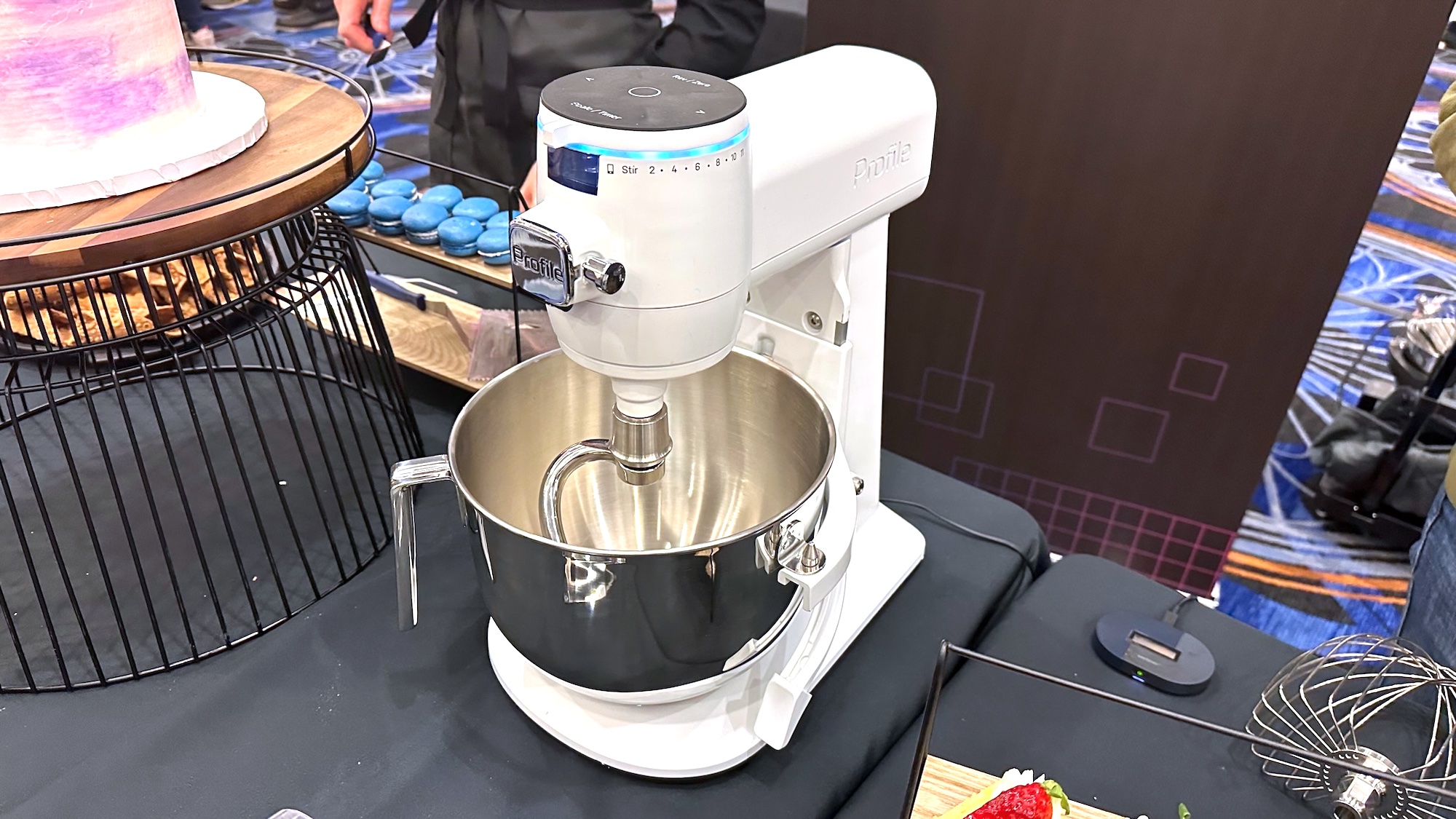
The smart market is looking particularly hot in the kitchen. The report predicts the smart kitchen segment will attain the highest compound annual growth rate (CAGR) in the forecast period due to the proliferation of automated kitchen products. And we've already seen several such products that entered the market in 2023.
Back in January, General Electric revealed its Profile smart mixer (pictured above), which was integrated with voice assistant support and connectivity. Additionally, the launch of new smart refrigerators has contributed to the segment’s growth. Also in January, LG announced its smart MoodUP refrigerator, which featured an LED panel, Wi-Fi connectivity, Bluetooth connectivity and other smart features.
Does AI have a place in the kitchen?
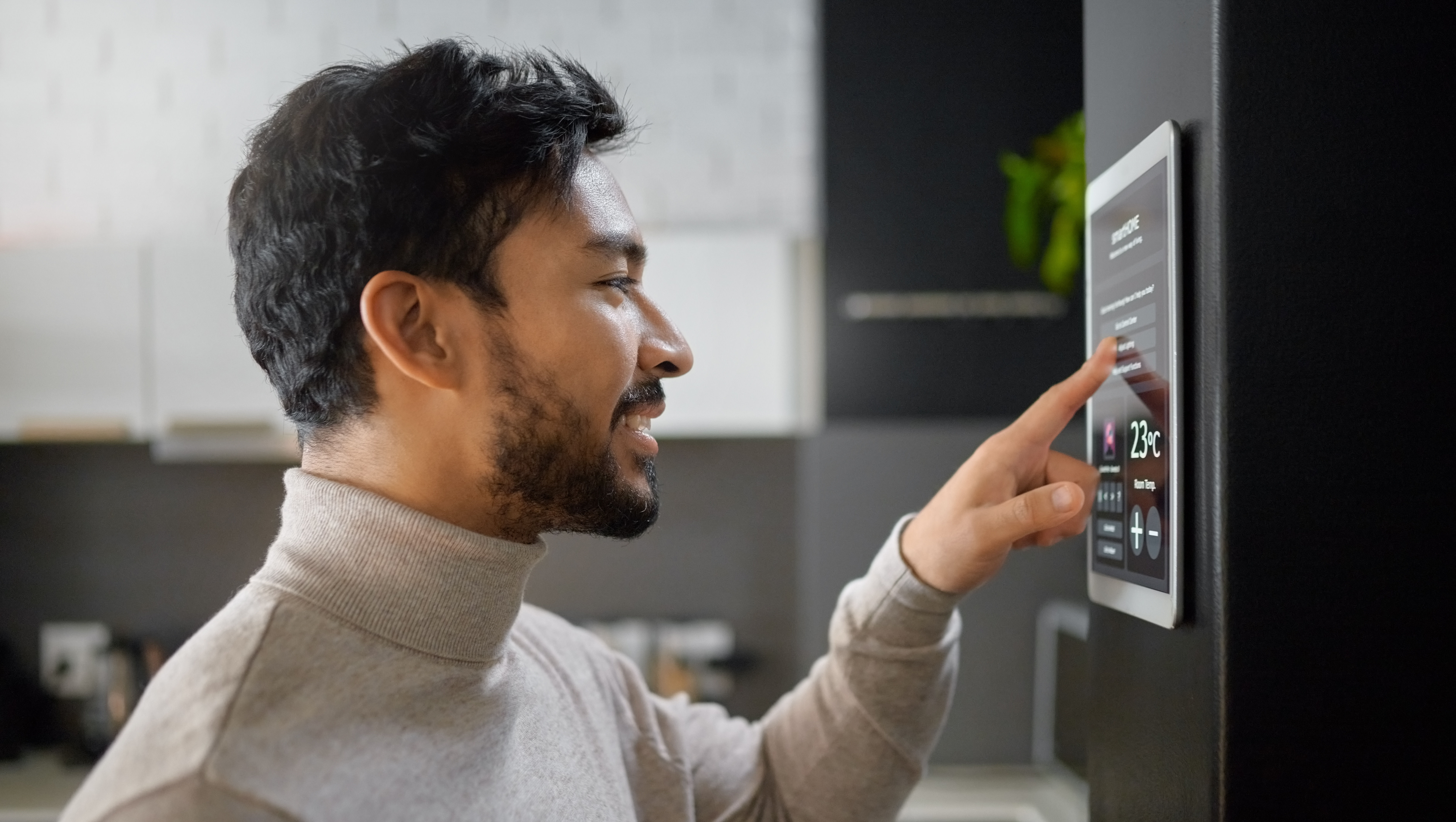
If you are a confident cook, having AI-assisted appliances in the kitchen may fill you with dread. And although I don’t cook lavish banquets, I’d certainly put myself in this category.
But AI-assisted kitchen appliances can do far more than cook your food, so it's worth finding what else they can do.
Besides cooking, kitchens are multi-functional spaces where dishes and clothes are washed, and food is chilled or frozen. So, how will AI improve your kitchen life, whether you’re cooking, cleaning or storing food? Let's find out...
Cooking: Make AI the dish of the day?
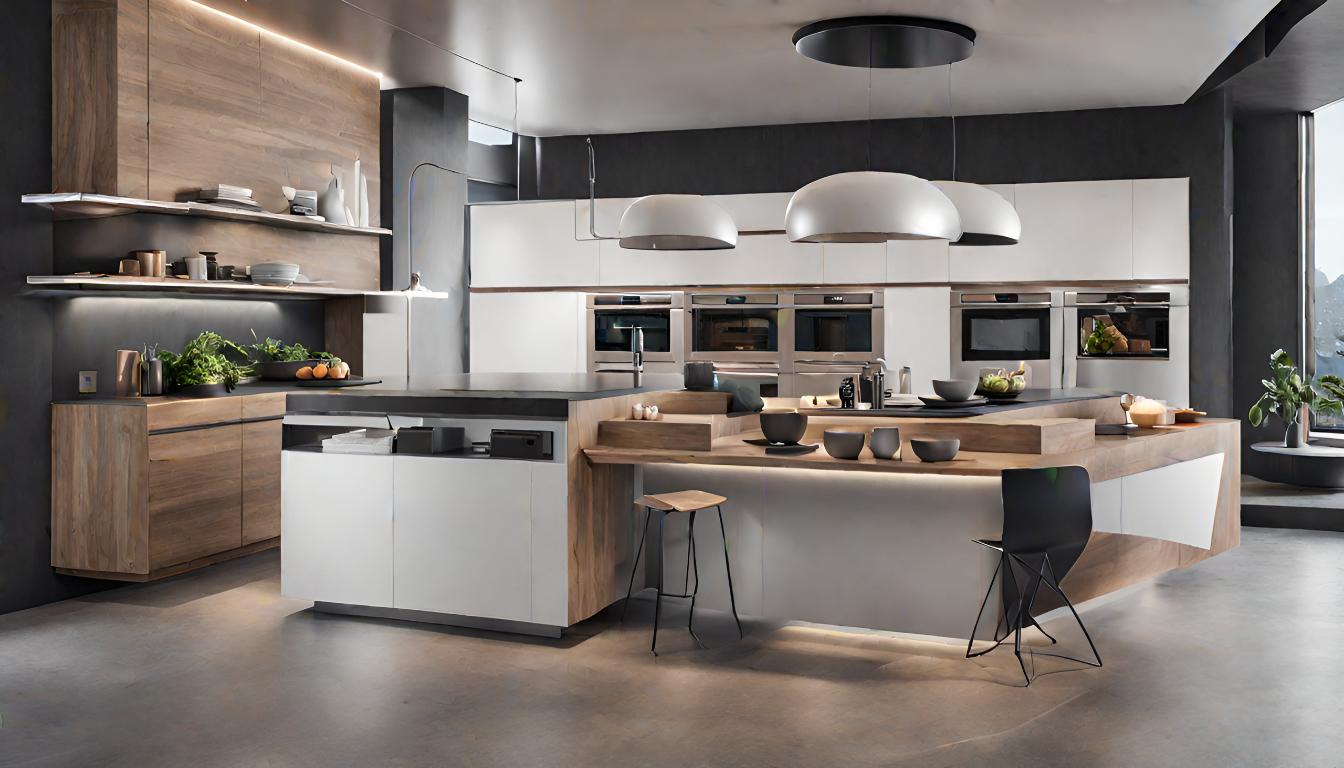
Smart ovens with built-in artificial intelligence will accurately predict when a dish is done. Say goodbye to using a timer or forgetting even to set it. You’ll no longer need to press down a sponge cake to watch it spring back to know it's perfectly baked or use a temperature probe to know your meat is safe to eat.
The Bosch Series 8 is one line of full-size smart ovens which come with AI built-in, providing a smart cooking experience with benefits. All the user has to do is select the appropriate cooking program on the smart oven’s touch screen or in the Home Connect app, then put the dish in the oven. You can move on to another task without worrying about checking your dish.
Smart ovens allow users to connect to apps that control the oven, adjust settings and monitor the food via a camera while it cooks. AI ovens go one step further. They are equipped with sensors that continuously monitor various metrics, such as temperature and humidity, while the food is cooking. The data is then used to predict when the dish will be ready, and the user is notified. Over time, its function improves as the oven learns how to cook specific foods.
The same principle applies to air fryers and microwaves, with AI-enabled technology and smart sensors taking the guesswork out of cooking.
Cleaning: Convenience and sustainability
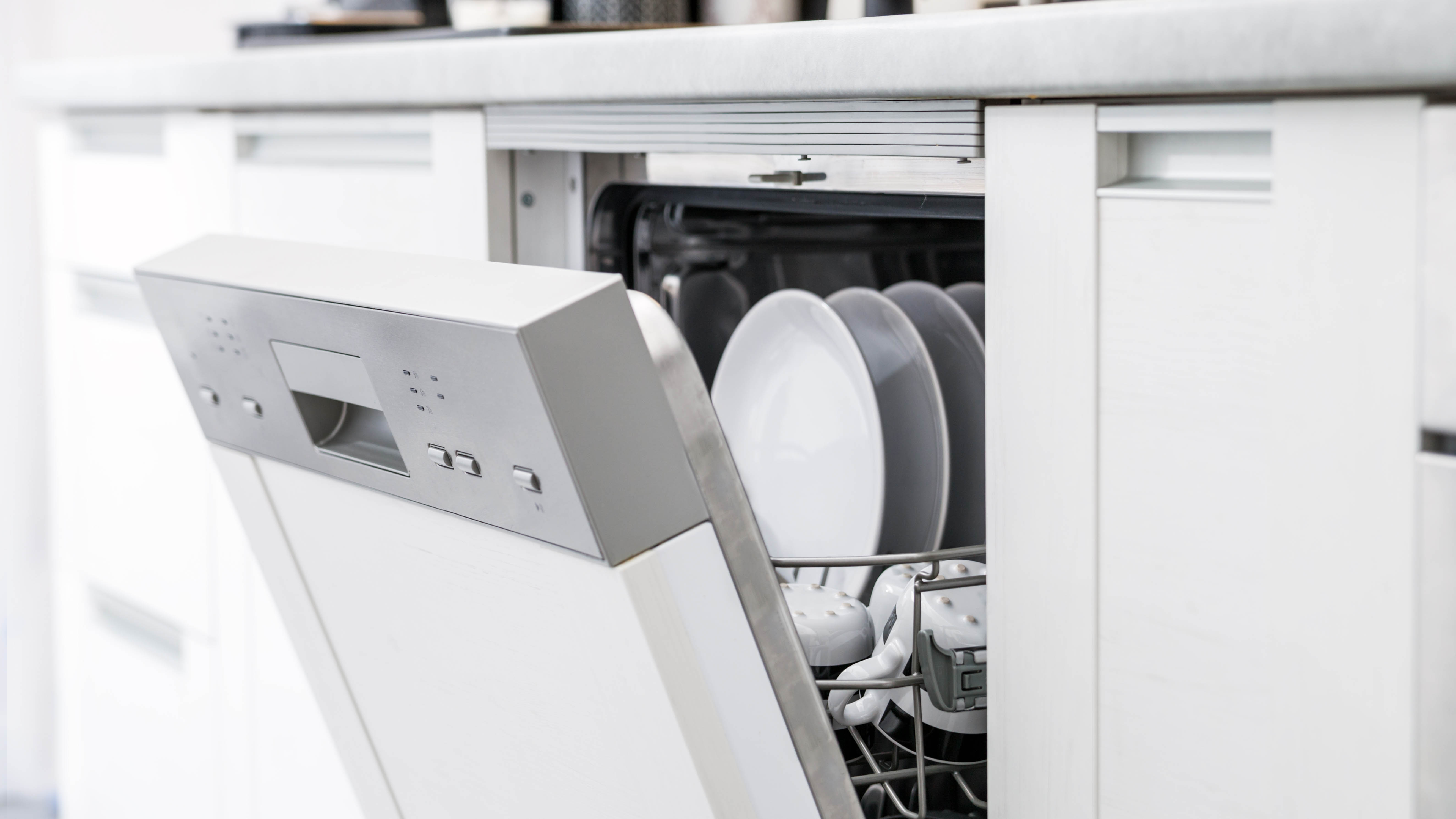
If your dishwasher goes kaput, you’re in for a long slog cleaning the dishes by hand. Once seen as a luxury item, they are now an indispensable tool in every kitchen. But while a dishwasher is a time-saving tool, will an AI-enabled appliance make much of a difference?
AI-integrated dishwashers can assess the number of dishes, the level of grime and the type of food residue. With this knowledge, they select the most appropriate washing cycle to achieve optimal cleaning results while conserving water and energy. Besides selecting the ideal wash cycle, the intelligent dishwasher will provide maintenance reminders and place orders for spare parts when needed.
And while you sit back and forget about the dishes, you can also rely on AI to improve the functionality of your washing machine. Samsung’s AI EcoBubble washing machine uses AI to make doing the laundry easier and more effective. AI Pattern learns and remembers your laundry habits and suggests the most appropriate cycle. Your clothes will be washed on the most appropriate cycle, even when family members who rarely use the machine, put on a load.
From a sustainability perspective it’s a win-win. The washing machines use sensors to judge the laundry's weight and level of soiling to optimize the amount of water, detergent and rinsing time.
Storage: AI smashes food waste
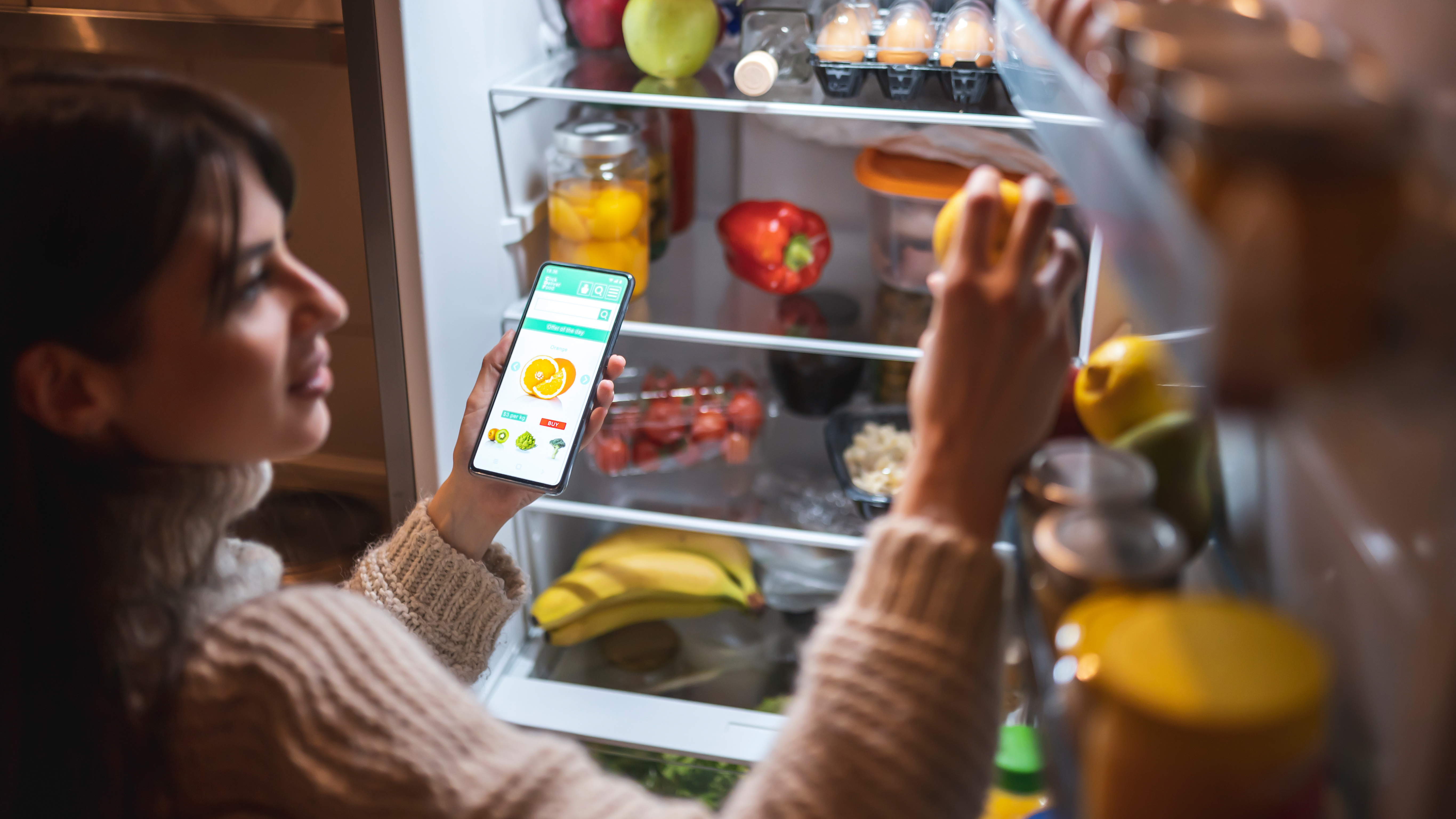
With the help of temperature sensors and cameras, AI can monitor food temperature and use by dates, reducing the risk of food poisoning. Cameras can read NFC labels to see when food is about to expire and suggest meals based on the ingredients that need to be used, helping to reduce food waste and removing the chore of working out what to cook each night.
Imagine a fridge that can order milk when you’re low, so you never have to go without milk in your coffee or senses that detect when your dry food stocks are running out. I’d welcome never having to make a shopping list again or work out what to eat each night.
As we become more accustomed to smart technology in our homes, we will begin to see how AI is being integrated into everyday appliances to make them more efficient and convenient to use. And with such a large array of devices in the kitchen, this is the room in the house where we will see the greatest change.
More from Tom's Guide
- Read this exclusive: AI breakthrough could let your next running shoes learn and adapt to how you move
- Check out the best smart home devices
- Plus, the best washing machines

Camilla Sharman has worked in publishing and marketing for over 30 years and has covered a wide range of sectors within the business and consumer industries both as a feature, content, and freelance writer.
As a business journalist, Camilla has researched articles for many different sectors from the jewellery industry to finance and tech, charities, and the arts. Whatever she’s covered, she enjoys delving deep and learning the ins and out of different topics, then conveying her research within engaging content that informs the reader. In her spare time, when she’s not in her kitchen experimenting with a new recipe, you’ll find her keeping fit at the gym. In the pool, stretching at a yoga class, or on a spin bike, exercise is her escape time. She also loves the great outdoors and if she’s not pottering about in her garden, she’ll be jumping on her bike for a gentle cycle ride.
